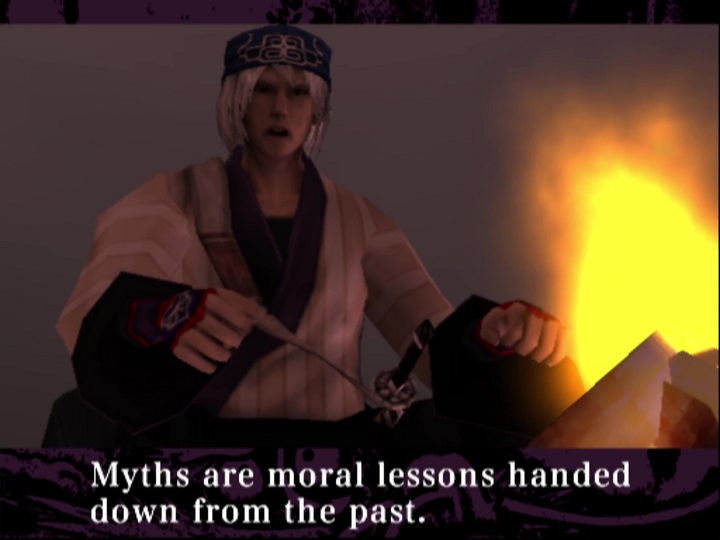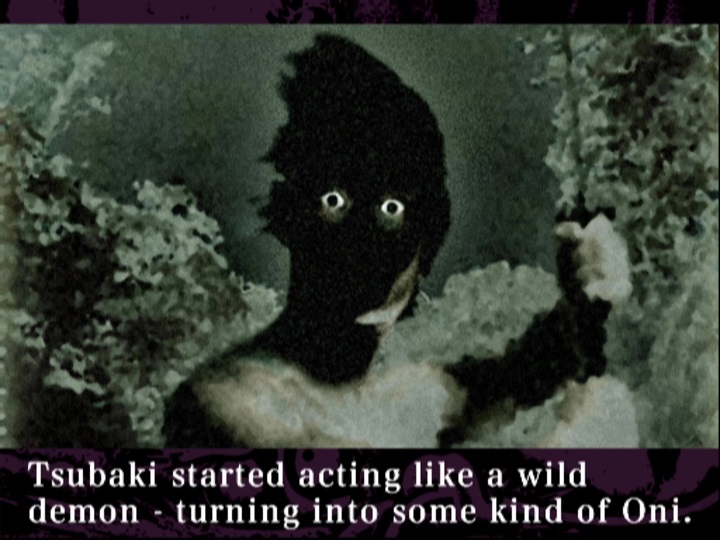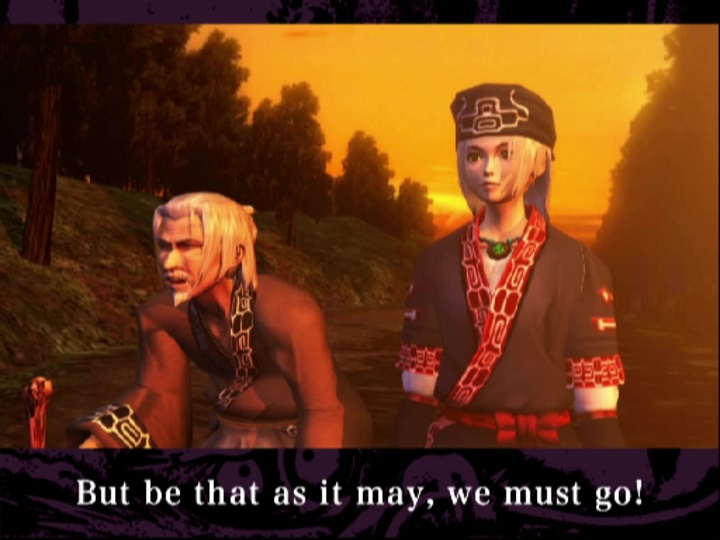
In contrast, Worso is more akin to Chizuru, Emir, or Shiroyabu. He lives only to fulfill the will of his late father by fulfilling the prophecy. And, as the narrator encourages the player to consider, the prophecy is not predestined: “Whether or not [the ancestors looked into the future] is open to interpretation depending on how one chooses to look at it.” The myth comes true specifically because the Tsurumaki engineer the circumstances to ensure it happens, luring Jin, Mugen, and Fuu to Ezo, actively seeking them out, consciously allowing Antonioni to kidnap Fuu to force the last battle, and so on. In the same way, Worso does not have to execute Kunnenishi, but she insists so that he can “become an Oni” and “do what [his] father could not” (i.e. defeat Lord Matsumae). Worso becomes an oni because he believes he must in order to fulfill the prophecy. After reflecting on the pointlessness of killing soldiers in the castle town, Worso thinks, “Nevertheless, if I don’t become an Oni…” The conclusion is implied: then the myth won’t come true.
Once he has avenged his father and reclaimed his ancestral land, as well as ensured the completion of the “great opunire,” Worso should be triumphant. But instead, similar to Chizuru and Emir, or Shiroyabu who only asks to die but does not, he dies by self-immolation (though earlier on survives being buried alive in flaming rubble in a similar fire). His tremendous power costs trauma, as with the savior Kamui. But this price cancels out the reward. It destroys the victory he could have had, ruining it for his sister, the one person he cares about, and for the rest of the old blood. Tsubaki, meanwhile, loses his family, home, and following and becomes a monster like Shiroyabu.

While Emir was never able to make his own choice, his action was ineffective on top of that. Worso could have liberated his people but fails due to the weight of the past, of the prophecy. He emphasizes that the prophecy is “handed down from the past” (emphasis mine). He does not kill the past but aims to preserve it. Therefore, as Kusabi warns, Worso is instead killed by the past. He literally ceases to be human, becoming smoke to, perhaps, rise into the same place above the palace as the bear kamuy. Despite his liberatory goals, Worso does not act on his own initiative but, to some degree, as a Format Kamui. This time, the format is the prophecy he was told from childhood on.
Another break with the Kamui/Ayame concept is that, even in killer7 and The 25th Ward, the ruling class themselves are not Kamui/Ayame but seek to control this power, movement, or information. In Sidetracked, though, the rulers, their minions, and Worso are all defined as oni. Killing might be questionable after all, transforming the noble assassin into the same kind of monster he fights, so that, in a catch-22, he has to kill himself to complete the liberation. This undoes the elimination of darkness, however, compelling his people to abandon their ancestral lands after all.

The doubt of the liberatory potential of Kamui continues even in a licensed shovelware title. Despite initial appearances, the conclusion is once again suicide and despair. Yet here, for commercial reasons, that doubt is much abated: Jin and Mugen are also “good kamui,” literally called saviors like Fujiwara because they kill as many hundreds of Matsumae minions as Worso, and they do so without undergoing the grief of becoming an “oni from hell” like him, Tsubaki, or Antonioni.
***